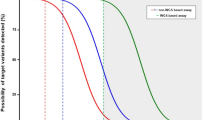Abstract
Cancer is the leading cause of death among Asian Americans, and cancer cases among Asian Americans, Pacific Islanders, and Native Americans are expected to rise by 132% by 2050. Yet, little is known about biologic and environmental factors that contribute to these higher rates of disease in this population. Precision medicine has the potential to contribute to a more comprehensive understanding of morbidity and mortality trends among Asian American subgroups and to reduce cancer-related health disparities by recognizing patients as individuals with unique genetic, environmental, and lifestyle characteristics; identifying ways in which these differences impact cancer expression; and developing tailored disease prevention and clinical treatment strategies to address them. Yet, substantial barriers to the recruitment and retention of Asian Americans in cancer research persist, threatening the success of precision medicine research in addressing these knowledge gaps. This commentary outlines the major challenges to recruiting and retaining Asian Americans in cancer trials, suggests ways of surmounting them, and offers recommendations to ensure that personalized medicine becomes a reality for all Americans.
Similar content being viewed by others
References
Stewart BW, et al. Cancer prevention as part of precision medicine: ‘plenty to be done’. Carcinogenesis. 2016;37(1):2–9.
Tan DS, Mok TS, Rebbeck TR. Cancer genomics: diversity and disparity across ethnicity and geography. J Clin Oncol. 2016;34(1):91–101.
Smith BD, et al. Future of cancer incidence in the United States: burdens upon an aging, changing nation. J Clin Oncol. 2009;27(17):2758–65.
American Cancer Society. Cancer facts & figures, 2016. Atlanta, GA: American Cancer Society, 2016. Available at: http://www.cancer.org/acs/groups/content/@research/documents/document/acspc-047079.pdf. Accessed December 14, 2016
Kagawa-Singer M, et al. Cancer, culture, and health disparities: time to chart a new course? CA Cancer J Clin. 2010;60(1):12–39.
The White House Press Office. Fact sheet: President Obama’s Precision Medicine Initiative. Issued January 30, 2015. May 3, 2016. Available from: https://www.whitehouse.gov/the-press-office/2015/01/30/fact-sheet-president-obama-s-precision-medicine-initiative
Collins FS, Varmus H. A new initiative on precision medicine. N Engl J Med. 2015;372(9):793–5.
National Institutes of Health. Precision medicine initiative cohort program. May 17, 2016. Available from: https://www.nih.gov/precision-medicine-initiative-cohort-program/funding-opportunities
Martin DN, et al. Recommendations for cancer epidemiologic research in understudied populations and implications for future needs. Cancer Epidemiol Biomark Prev. 2016;25(4):573–80.
Jackson SE, Chester JD. Personalised cancer medicine. Int J Cancer. 2015;137(2):262–6.
Passel, J.S. and D. Cohn, U.S. population projections: 2005–2050. 2008, Pew Research Center.
Chen Jr MS. Cancer health disparities among Asian Americans: what we do and what we need to do. Cancer. 2005;104(12 Suppl):2895–902.
Kagawa-Singer M, et al. Breast and cervical cancer screening rates of subgroups of Asian American women in California. Med Care Res Rev. 2007;64(6):706–30.
Islam NS, et al. Methodological issues in the collection, analysis, and reporting of granular data in Asian American populations: historical challenges and potential solutions. J Health Care Poor Underserved. 2010;21(4):1354–81.
Yi SS, et al. Commentary: persistence and health-related consequences of the model minority stereotype for Asian Americans. Ethn Dis. 2016;26(1):133–8.
Institute of Medicine. Unequal treatment: confronting racial and ethnic disparities in healthcare. Available at: http://www.nationalacademies.org/hmd/Reports/2002/Unequal-Treatment-Confronting-Racial-and-Ethnic-Disparities-in-Health-Care.aspx.
Gany FM, et al. Attitudes, knowledge, and health-seeking behaviors of five immigrant minority communities in the prevention and screening of cancer: a focus group approach. Ethn Health. 2006;11(1):19–39.
Bodle EE, et al. Cancer screening practices of Asian American physicians in New York City. J Immigr Minor Health. 2008;10(3):239–46.
Pollack HJ, et al. Chronic hepatitis B and liver cancer risks among Asian immigrants in New York City: results from a large, community-based screening, evaluation, and treatment program. Cancer Epidemiol Biomark Prev. 2014;23(11):2229–39.
Gross ER, et al. A personalized medicine approach for Asian Americans with the aldehyde dehydrogenase 2*2 variant. Annu Rev Pharmacol Toxicol. 2015;55:107–27.
Oh SS, et al. Diversity in clinical and biomedical research: a promise yet to be fulfilled. PLoS Med. 2015;12(12):e1001918.
Holland AT, Palaniappan LP. Problems with the collection and interpretation of Asian-American health data: omission, aggregation, and extrapolation. Ann Epidemiol. 2012;22(6):397–405.
Metzl JM, Hansen H. Structural competency: theorizing a new medical engagement with stigma and inequality. Soc Sci Med. 2014;103:126–33.
Khalili M, et al. Hepatitis B and hepatocellular carcinoma screening among Asian Americans: survey of safety net healthcare providers. Dig Dis Sci. 2011;56(5):1516–23.
Kagawa-Singer M, et al. Impact of breast cancer on Asian American and Anglo American women. Cult Med Psychiatry. 1997;21:449–80.
Hsu L, et al. Electronic messages increase hepatitis B screening in at-risk Asian American patients: a randomized, controlled trial. Dig Dis Sci. 2013;58(3):807–14.
Mock J, et al. Effective lay health worker outreach and media-based education for promoting cervical cancer screening among Vietnamese American women. Am J Public Health. 2007;97(9):1693–700.
Tu SP, et al. Promoting culturally appropriate colorectal cancer screening through a health educator: a randomized controlled trial. Cancer. 2006;107(5):959–66.
Acknowledgements
We wish to thank Simona Kwon for her helpful feedback and comments on this manuscript. This research was supported in part by P60MD000538 from the National Institutes of Health (NIH)/National Institute on Minority Health and Health Disparities U48DP005008 and U58DP005621 from the Centers for Disease Control and Prevention (CDC) and UL1TR001445 from the NIH/National Center for Advancing Translational Sciences. The contents of this publication are solely the responsibility of the authors and do not necessarily represent the official views of the NIH and CDC.
Author information
Authors and Affiliations
Corresponding author
Ethics declarations
Conflict of Interest
The authors declare that they have no competing interests.
Ethical Approval
This article does not contain any studies with human participants performed by any of the authors.
Additional information
Ms. Sacks is an Independent Consultant.
Rights and permissions
About this article
Cite this article
Trinh-Shevrin, C., Sacks, R., Ahn, J. et al. Opportunities and Challenges in Precision Medicine: Improving Cancer Prevention and Treatment for Asian Americans. J. Racial and Ethnic Health Disparities 5, 1–6 (2018). https://doi.org/10.1007/s40615-016-0334-9
Received:
Revised:
Accepted:
Published:
Issue Date:
DOI: https://doi.org/10.1007/s40615-016-0334-9




